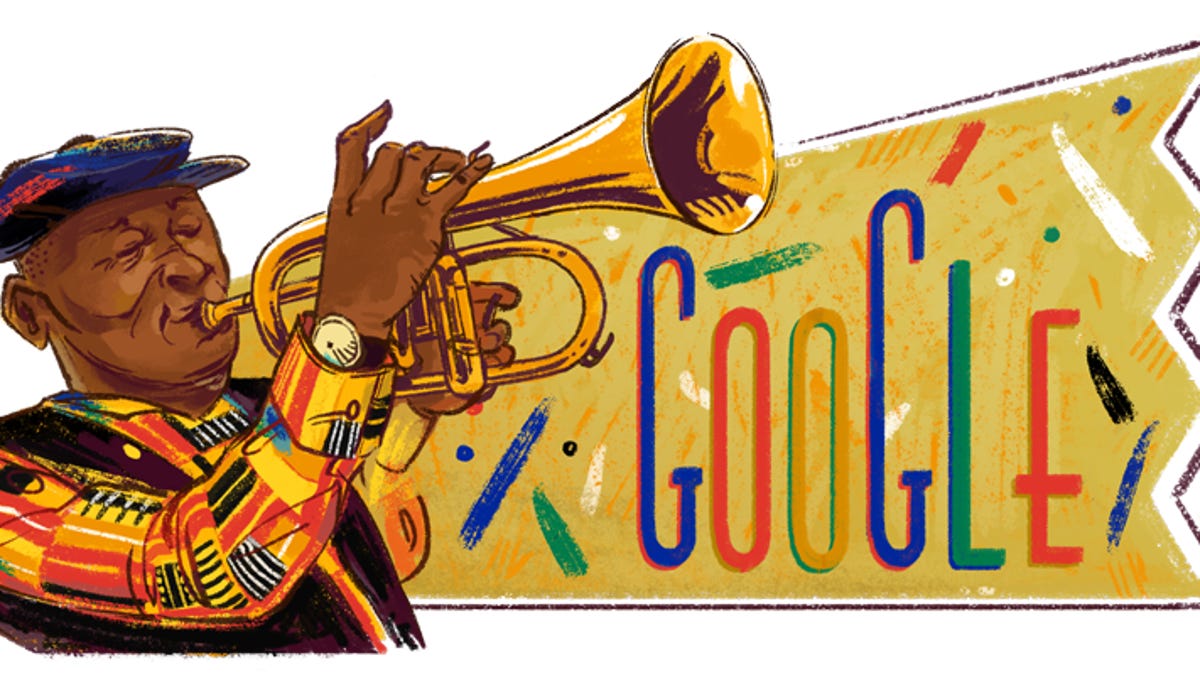Google Doodle celebrates Hugh Masekela, jazz legend and anti-apartheid activist
The South African musician collaborated with Marvin Gaye, Paul Simon and Stevie Wonder, but never forgot his roots.

Hugh Masekela's jazz chops are the subject of Thursday's Google Doodle.
Thursday's Google Doodle took a jazzy turn as it shone the spotlight on South African musician Hugh Masekela on what would've been his 80th birthday.
Masekela was born in the eastern city of Witbank on April 4, 1939, and took up the trumpet when he was 14. He and his band, Jazz Epistles, became the first all-black jazz band to record an album in South African history.
They were forced to leave the country as the apartheid government tightened its grip in 1960 and Masekela didn't return for 30 years. During this period, he traveled to the UK and US, where he studied classical trumpet at the Manhattan School of Music from 1960 to 1964.
He also became a big part of New York's jazz scene, checking out legends including John Coltrane, Thelonious Monk, Charlie Mingus and Max Roach before recording his debut solo album Trumpet Africaine in 1962.
The late '60s took him west to LA, and he played the 1967 Monterey Pop Festival on a bill alongside Jimi Hendrix, Ravi Shankar and The Who. His song Grazing in the Grass hit No. 1 in the US in 1968.
He collaborated Fela Kuti, Bob Marley, Marvin Gaye, Paul Simon (whom he toured with in the '80s) and Stevie Wonder. But he never forgot his roots as he wrote anti-apartheid tunes such as Soweto Blues and Bring Him Back Home -- spreading awareness of the 1976 Soweto uprising and demanding the release of jailed icon Nelson Mandela.
Masekela performs in 1990, the year he returned to South Africa.
Masekela returned to his home country in 1990, in time to see Mandela released, the end of apartheid and the election of Mandela as the country's first black head of state.
The musician lost his 10-year battle with prostate cancer on Jan. 23, 2018, aged 78.
First published 2:32 a.m. PT.
Updated at 3:25 a.m. PT: Adds more detail.

